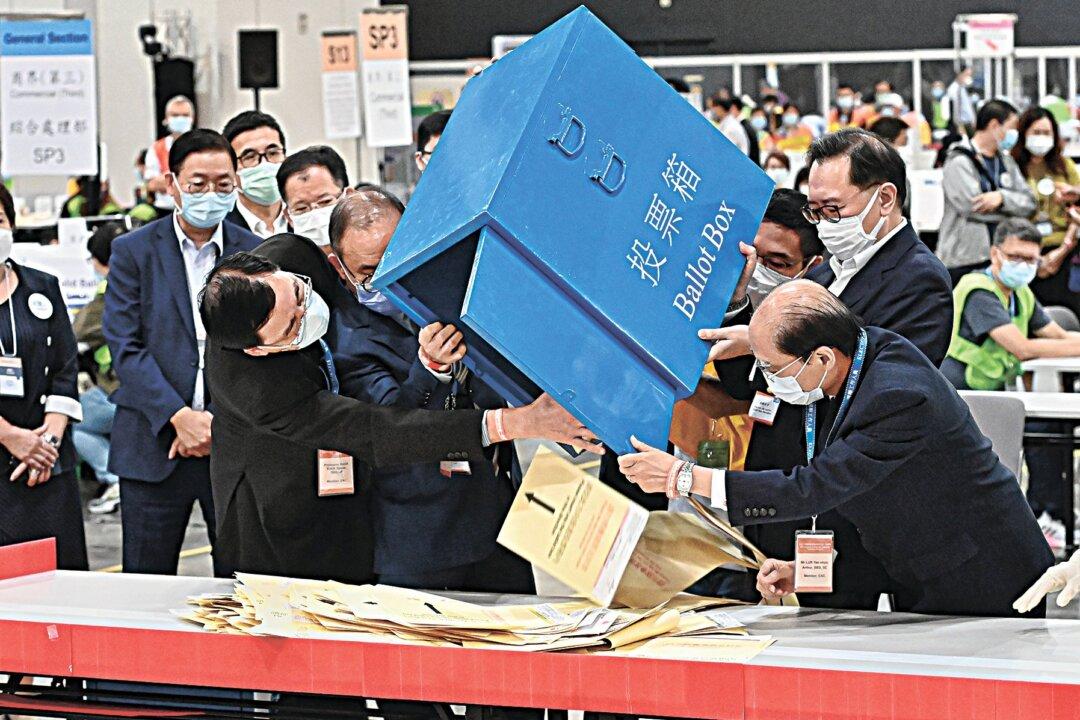With a drastically reduced number of directly elected seats, the Chinese Communist Party (CCP) has allegedly improved Hong Kong’s electoral system in preparation for the onset of the District Council elections to be held at the end of this year. However, the latest provisional records of Hong Kong’s geographical constituency show overall voter numbers falling for the second consecutive year, and a 10.3 percent drop in numbers over the last three years for those aged between 18 and 30.
The upcoming elections represent the final piece in the puzzle of amendments initiated by the CCP in 2021 for its so-called “improving the electoral system.” However, by systematically scrutinizing the political backgrounds of candidates, it has only weakened the democratic characteristics of direct elections.
